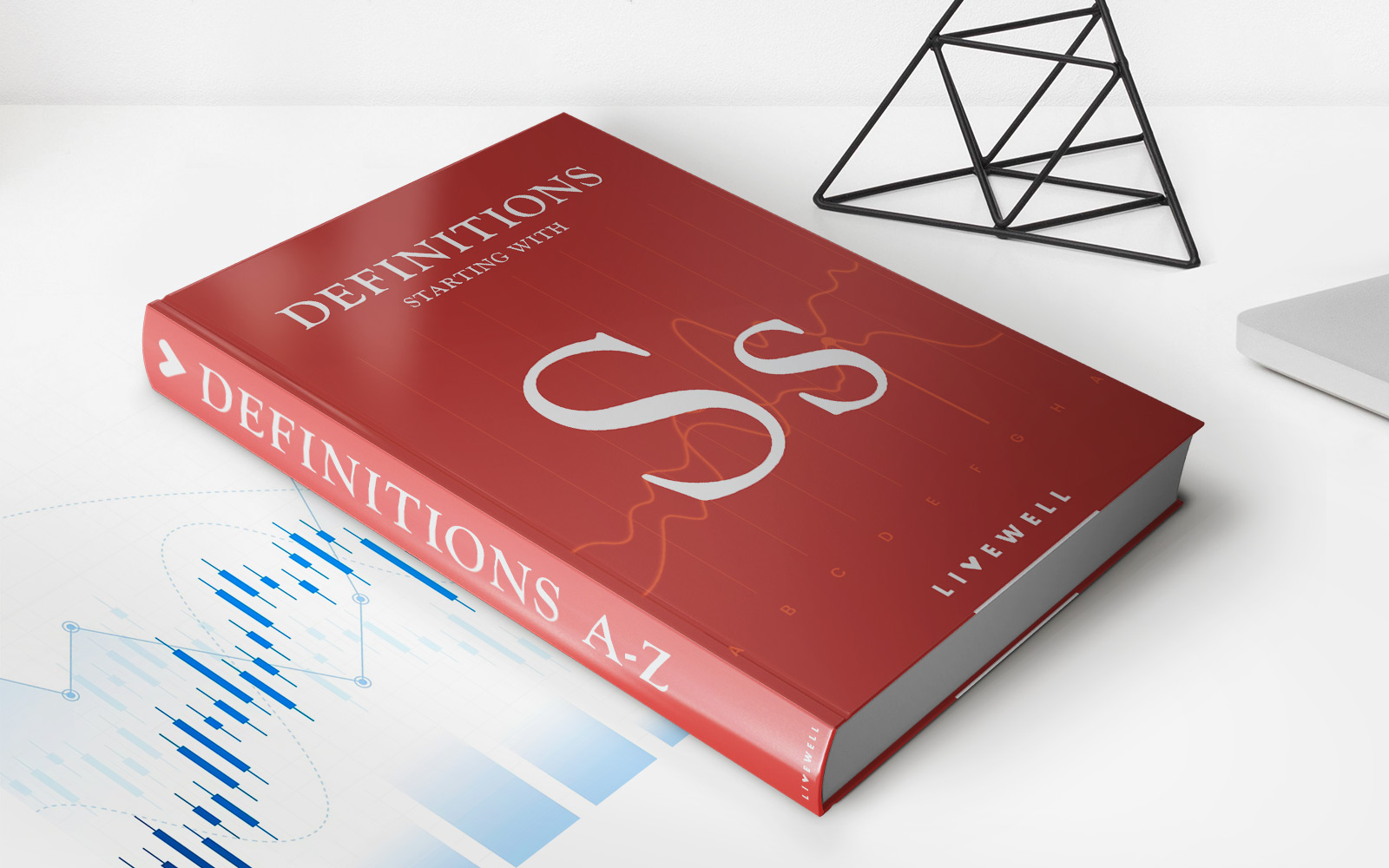

Finance
What To Do If You Inherit A 401K
Modified: December 30, 2023
Wondering what to do if you inherit a 401K? Get expert financial advice and tips to navigate this inheritance and maximize your financial future.
(Many of the links in this article redirect to a specific reviewed product. Your purchase of these products through affiliate links helps to generate commission for LiveWell, at no extra cost. Learn more)
Table of Contents
- Introduction
- Understanding 401K Inheritance
- Assessing Your Options
- Option 1: Roll Over the Inherited 401K
- Option 2: Cash Out the Inherited 401K
- Option 3: Convert to an Inherited IRA
- Option 4: Transfer to Your Own 401K
- Option 5: Take Required Minimum Distributions (RMDs)
- Considerations for Non-Spouse Beneficiaries
- Tax Implications and Planning
- Seeking Professional Guidance
- Final Thoughts
Introduction
Inheriting a 401K can be both a financial blessing and a source of confusion. While it is undoubtedly advantageous to receive such a retirement account, understanding what to do with it can be overwhelming. The decisions you make regarding your inherited 401K can have a significant impact on your financial future.
Before diving into the various options available to you, it is essential to have a basic understanding of what a 401K is and how it works. A 401K is a retirement savings plan offered by employers to their employees. It allows individuals to contribute pre-tax dollars from their salary into an investment account, where the money can grow tax-free until retirement. Many employers also match a portion of their employees’ contributions, making it even more appealing.
When you inherit a 401K, it means that you have become the beneficiary of someone else’s retirement account. The rules and options for managing an inherited 401K can differ depending on your relationship to the original account holder. If you are the spouse of the account owner, you have different options compared to non-spouse beneficiaries.
The purpose of this article is to help you navigate the complexities of inheriting a 401K and provide guidance on the various options you have available. We will discuss the pros and cons of each choice, as well as the potential tax implications associated with them. Keep in mind that while we strive to provide accurate and up-to-date information, it is always advisable to consult a financial advisor or tax professional before making any decisions.
So, whether you have recently inherited a 401K or anticipate the possibility in the future, let’s dive into the various paths you can take to make the most of this inheritance.
Understanding 401K Inheritance
When it comes to inheriting a 401K, it’s essential to understand the specific rules and regulations that govern this type of inheritance. The way you can manage the account and the options available to you will vary depending on your relationship to the original account holder.
If you are the spouse of the deceased account owner, you have the most flexibility in managing the inherited 401K. You have the option to roll it over into your own 401K account or an Individual Retirement Account (IRA) in your name. By doing so, you can maintain the tax advantages and continue to let the funds grow until you reach retirement age.
For non-spouse beneficiaries who inherit a 401K, the options are slightly different. Typically, you won’t be able to roll over the account into your own 401K. Instead, you’ll need to explore alternatives such as cashing out the account, converting it into an Inherited IRA, or transferring it to an account specifically designed for non-spouse beneficiaries.
One crucial thing to note is that inherited 401Ks have required minimum distributions (RMDs) that must be taken each year, regardless of your age. RMDs are calculated based on your life expectancy and the balance of the account. Failing to take these distributions can result in significant tax penalties. It’s important to familiarize yourself with the RMD rules and make sure you comply with them every year.
Additionally, it’s important to consider the tax implications of inheriting a 401K. Traditional 401Ks are funded with pre-tax dollars, meaning the original account holder didn’t pay taxes on the contributions. When you inherit this account, you’ll have to pay income tax on any withdrawals you make. On the other hand, if the account was a Roth 401K, where contributions were made with after-tax dollars, withdrawals are typically tax-free.
In some cases, the original account owner may have already started taking distributions from their 401K before passing away. If you inherit a 401K with ongoing distributions, you’ll need to continue taking them based on the original schedule. Failure to do so can result in severe tax consequences.
Overall, understanding the rules and options surrounding 401K inheritance is crucial to making informed decisions. It’s recommended to consult with a financial advisor or tax professional who can provide personalized guidance based on your specific situation. By having a clear understanding of the rules and the choices available to you, you can make the most of your inherited 401K and ensure that it aligns with your long-term financial goals.
Assessing Your Options
When you inherit a 401K, it’s important to carefully assess your options before making any decisions. Each option comes with its own advantages and considerations, so it’s essential to understand how they align with your financial goals and circumstances.
Option 1: Roll Over the Inherited 401K
If you are the spouse of the account owner, rolling over the inherited 401K into your own retirement account is often a favorable choice. By doing so, you can consolidate your retirement savings and continue to enjoy the tax advantages associated with a 401K or an IRA. This option allows you to keep the funds growing tax-deferred until you reach retirement age.
Option 2: Cash Out the Inherited 401K
Another option is to cash out the inherited 401K. While this may provide you with a lump sum of money upfront, it comes with tax implications. When you make a withdrawal from a traditional 401K, you’ll be subject to income tax on the amount withdrawn. Depending on the size of the account and your tax bracket, cashing out the 401K in one go could lead to a substantial tax burden.
Option 3: Convert to an Inherited IRA
For non-spouse beneficiaries, converting the inherited 401K into an Inherited IRA can be a wise choice. An Inherited IRA allows you to stretch the distributions over your life expectancy, providing you with a regular income stream while potentially minimizing the tax impact. This option can be particularly beneficial if you don’t need immediate access to the funds and want to continue growing the account.
Option 4: Transfer to Your Own 401K
Some employers may allow non-spouse beneficiaries to transfer the inherited 401K into their own employer-sponsored retirement plan, such as a 401K or a 403B. This option can be advantageous if you prefer to have all your retirement savings in one account and want to take advantage of the investment options and employer contributions available in your own plan.
Option 5: Take Required Minimum Distributions (RMDs)
Regardless of your relationship to the account owner, you’ll need to take required minimum distributions (RMDs) from the inherited 401K. RMDs are calculated based on your life expectancy and the balance of the account. Failure to take the required distributions can result in severe tax penalties, so it’s crucial to understand and comply with the RMD rules.
When assessing your options, consider factors such as your age, financial needs, tax implications, and long-term goals. Additionally, consult with a financial advisor or tax professional who can provide personalized advice based on your situation. They can help you evaluate the trade-offs and make an informed decision that aligns with your specific circumstances.
Option 1: Roll Over the Inherited 401K
If you are the spouse of the deceased account owner, one option available to you is to roll over the inherited 401K into your own retirement account. This can be either your existing 401K or an Individual Retirement Account (IRA) in your name.
There are several benefits to choosing this option. First, by rolling over the inherited 401K, you can continue to reap the tax advantages associated with these retirement accounts. Contributions to a traditional 401K or IRA are made with pre-tax dollars, meaning you can deduct them from your taxable income. This helps lower your overall tax liability and allows your investment to grow tax-deferred until you reach retirement age.
Rolling over the inherited 401K into your own account also gives you greater control and flexibility. You can manage the investments according to your risk tolerance and financial goals. Additionally, consolidating your retirement savings into one account can make it easier to track and manage your investments.
To initiate a rollover, you will need to contact the plan administrator of the inherited 401K and inform them of your intention to transfer the funds. They will provide you with the necessary forms and instructions to facilitate the rollover. It’s important to note that there may be specific deadlines and requirements associated with this process, so it’s advisable to act promptly and ensure you follow all necessary steps.
When choosing to roll over the inherited 401K, it’s crucial to consider the long-term implications. Assess the investment options and fees associated with your existing 401K or IRA. Compare them with the inherited 401K to ensure you are making an informed decision that aligns with your investment and retirement goals.
Keep in mind that if you roll over the inherited 401K into an IRA, the funds will be subject to the same rules and regulations governing traditional IRAs. This includes required minimum distributions (RMDs) that must be taken annually once you reach age 72. Failure to take the required distributions can result in significant tax penalties.
Ultimately, rolling over the inherited 401K can be a strategic move for spouses who want to maintain the tax advantages and consolidate their retirement savings. It’s advisable to consult a financial advisor or tax professional who can guide you through the process and ensure you make the most suitable decision based on your individual circumstances.
Option 2: Cash Out the Inherited 401K
If you have inherited a 401K and find yourself in need of immediate funds or have other financial priorities, one option available to you is to cash out the inherited 401K. This allows you to receive a lump sum payment from the account.
While cashing out the inherited 401K can provide you with immediate access to a significant sum of money, there are important factors to consider before making this decision.
Tax Implications – When you cash out a traditional 401K, the distribution is considered taxable income. This means that you will need to pay income tax on the amount withdrawn. Depending on the size of the account and your tax bracket, this could result in a substantial tax liability. It’s important to calculate the potential tax consequences and consider whether you have the resources to cover the tax bill.
Early Withdrawal Penalties – If you are under the age of 59 ½, cashing out the inherited 401K may also subject you to early withdrawal penalties. Typically, early withdrawals from retirement accounts incur a 10% penalty on top of the income tax owed. However, as an inheritor, you may be exempt from the early withdrawal penalty. It’s essential to review the IRS guidelines or consult with a tax professional to understand any potential penalties that may apply.
Impact on Long-Term Retirement Savings – Cashing out the inherited 401K means extinguishing the potential growth of that account. By taking the funds out, you forego the opportunity for tax-deferred growth and potentially limit your retirement savings in the long run. It’s crucial to assess the impact of this choice on your overall retirement planning and consider alternatives that may better align with your financial goals.
If you have urgent financial needs or are facing a difficult financial situation, cashing out the inherited 401K may be a viable option. However, it’s recommended to explore other alternatives before making a decision. Consider options such as personal loans, home equity loans, or other sources of funding that may be less detrimental to your long-term financial well-being.
Before cashing out the inherited 401K, consult with a financial advisor or tax professional who can help you evaluate the potential consequences and explore alternative solutions. They can provide personalized guidance based on your specific circumstances and help you make an informed decision that aligns with your financial goals.
Option 3: Convert to an Inherited IRA
For non-spouse beneficiaries who inherit a 401K, converting the account into an Inherited IRA can be a beneficial option to consider. An Inherited IRA, also known as a beneficiary IRA, allows you to maintain the tax advantages of the inherited 401K while providing flexibility in managing the distributions.
Converting the inherited 401K to an Inherited IRA offers several advantages:
Stretch Distributions Over Your Life Expectancy – By converting to an Inherited IRA, you have the opportunity to stretch the distributions over your life expectancy, potentially allowing for a longer period of tax-deferred growth. This means that you only need to withdraw a minimum amount each year, based on the IRS life expectancy tables. This approach can help preserve the funds in the account and potentially maximize their growth potential.
Flexibility in Distributions – With an Inherited IRA, you have flexibility in managing the distributions. While RMDs are still required, you have the ability to take larger withdrawals if needed. Additionally, you are not limited to annual distributions only; you can take distributions at any time as long as you meet the minimum distribution requirements. This flexibility allows you to tailor the withdrawals to your financial needs while still adhering to the IRS guidelines.
Tax Considerations – When you convert the inherited 401K into an Inherited IRA, there are no immediate tax consequences. The funds remain tax-deferred, and income tax is only due when you take withdrawals. This allows the account to continue growing without the burden of immediate tax obligations.
Control and Investment Options – By converting to an Inherited IRA, you gain control over the investments within the account. You can choose investments that align with your risk tolerance and financial goals. This flexibility empowers you to potentially optimize the growth of the inherited funds.
In order to convert the inherited 401K to an Inherited IRA, you will need to establish a new IRA account specifically designated as an Inherited IRA. The process and requirements may vary depending on the custodian or financial institution managing the IRA. It’s important to consult with them to ensure a smooth conversion process.
Keep in mind that Inherited IRAs also have required minimum distributions (RMDs), which must be taken annually based on your life expectancy. It’s crucial to understand and comply with these distribution rules to avoid potential tax penalties.
Converting to an Inherited IRA can be an attractive option for non-spouse beneficiaries who want to retain the tax advantages of the inherited account while benefiting from the flexibility and control offered by an IRA. It’s always recommended to consult with a financial advisor or tax professional who can provide personalized guidance based on your individual circumstances and help you navigate the conversion process effectively.
Option 4: Transfer to Your Own 401K
If you are a non-spouse beneficiary who already has an employer-sponsored retirement plan, such as a 401K or a 403B, you may have the option to transfer the inherited 401K into your own retirement account. This can be a beneficial choice for individuals who prefer to consolidate their retirement savings into a single account or take advantage of the investment options and employer contributions available in their own plan.
Transferring the inherited 401K into your own 401K comes with several advantages:
Consolidation of Retirement Savings – By transferring the funds, you can consolidate your retirement savings into one account. This can simplify your financial management and make it easier to track your investments and monitor your progress towards your retirement goals.
Employer Contributions – If your employer offers a matching contribution to your 401K, transferring the inherited funds into your own account allows you to potentially benefit from additional employer contributions. This can help boost your retirement savings and accelerate your progress towards a comfortable retirement.
Investment Options – Your own employer-sponsored retirement plan may offer a wider range of investment options compared to the inherited 401K. By transferring the funds, you can take advantage of a broader selection of investments tailored to your risk tolerance and investment preferences.
When considering a transfer to your own 401K, it’s essential to understand the specific rules and guidelines set by your plan administrator. They can provide information on the process and any requirements for transferring the funds. It’s important to complete the transfer within the designated timeframe to ensure a seamless transition and avoid any potential tax consequences.
It’s also worth noting that once you transfer the funds into your own 401K, the account will be subject to the same rules and regulations governing 401K accounts. This includes required minimum distributions (RMDs) that must be taken annually once you reach age 72. Make sure to familiarize yourself with these rules and fulfill the RMD requirements to avoid any penalties.
Transferring the inherited 401K into your own 401K can offer convenience, investment options, and potential employer contributions. However, it’s important to carefully evaluate the terms and benefits of your own retirement plan compared to the inherited account to ensure that the transfer aligns with your financial goals and retirement strategy.
If you’re unsure whether transferring the funds to your own 401K is the right choice for you, it’s advisable to consult with a financial advisor who can provide personalized guidance based on your individual circumstances and help you make an informed decision.
Option 5: Take Required Minimum Distributions (RMDs)
When you inherit a 401K, regardless of your relationship to the account owner, you are required to take annual distributions, known as required minimum distributions (RMDs). This option ensures that you meet the IRS guidelines and avoid potential tax penalties.
Here are some key points to consider regarding RMDs:
Calculating RMDs – The amount you are required to withdraw annually as your RMD is based on your life expectancy and the balance of the inherited 401K. The IRS provides tables to determine the minimum distribution amount for each year. It’s important to calculate the RMD accurately to ensure compliance with the rules.
Timing of RMDs – The first RMD must be taken by December 31st of the year following the account owner’s death. Subsequent RMDs should be taken by December 31st of each subsequent year. Failure to take the required distribution by the deadline can result in significant tax penalties.
Tax Implications – RMDs from inherited 401Ks are typically subject to income tax. The funds distributed are considered taxable income in the year they are withdrawn. It’s important to plan for the tax liability associated with RMDs and consider the impact on your overall tax situation.
Flexibility in RMDs – While RMDs are mandatory, you have the flexibility to withdraw more than the minimum required amount. This can be advantageous if you have financial needs or if you want to accelerate the distribution of the inherited funds. However, keep in mind that any amount withdrawn above the RMD will still be subject to income tax.
Non-spouse Beneficiary Considerations – Non-spouse beneficiaries have additional factors to consider when taking RMDs. If the account owner had already started taking RMDs before passing away, you may need to continue taking distributions at the same rate or according to the original schedule. Failure to do so can result in penalties. It’s crucial to review the account documents and consult with a financial advisor or tax professional to ensure compliance.
Taking RMDs provides a structured approach to distributing the inherited 401K funds over time. While it may limit your ability to control the timing and amount of distributions, it ensures adherence to IRS guidelines and minimizes the risk of penalties.
It’s advisable to work with a financial advisor or tax professional to calculate and manage your RMDs effectively. They can provide guidance on tax planning strategies, help you understand the impact of distributions on your overall financial situation, and ensure compliance with the necessary rules and regulations.
Considerations for Non-Spouse Beneficiaries
As a non-spouse beneficiary who inherits a 401K, there are unique considerations to keep in mind when managing the account. While the available options and rules may differ from those for spouses, understanding these considerations can help you make informed decisions regarding your inherited 401K.
Option Limitations: Non-spouse beneficiaries typically have limitations on certain options that are available to them. For example, rolling over the inherited 401K into their own retirement account, such as an individual 401K, may not be allowed. It’s important to familiarize yourself with the options that are applicable to your situation and consult with the plan administrator or a financial advisor for guidance.
Stretching Distributions: Non-spouse beneficiaries have the opportunity to stretch the distributions from the inherited 401K over their own life expectancy. This means that you can take smaller annual distributions, potentially allowing for greater tax-deferred growth over time. Stretching the distributions can be a strategic approach to maximize the value of the account and potentially minimize the tax impact.
Required Minimum Distributions (RMDs): Non-spouse beneficiaries are also subject to RMDs from the inherited 401K. It’s crucial to calculate the RMD accurately based on your life expectancy and the account balance. Failure to take the required distributions can result in significant tax penalties. Ensure that you understand the RMD rules and meet the deadlines each year.
Inherited IRA Conversion: One option available to non-spouse beneficiaries is to convert the inherited 401K into an Inherited IRA. The Inherited IRA allows for greater flexibility in managing the distributions, potentially reducing the tax liability and allowing for more control over the timing and amount of withdrawals. Consider consulting with a financial advisor or tax professional to evaluate the benefits of converting the account to an Inherited IRA.
Tax Implications and Planning: Non-spouse beneficiaries need to consider the tax implications of their inherited 401K. Withdrawals from traditional 401Ks are typically subject to income tax, while withdrawals from Roth 401Ks are generally tax-free. It’s essential to understand how the withdrawals will impact your overall tax situation and develop a tax planning strategy that aligns with your financial goals.
Financial Goals and Time Horizon: As a non-spouse beneficiary, consider your own financial goals and time horizon when making decisions about the inherited 401K. Assessing your retirement needs, other sources of income, and investment objectives can help you determine the most appropriate course of action. Consulting with a financial advisor can provide valuable insights and guidance tailored to your specific circumstances.
Managing an inherited 401K as a non-spouse beneficiary requires careful consideration of the available options, tax implications, and your personal financial goals. Each decision should be thoughtfully made, taking into account both the short-term and long-term impact on your financial well-being. Seek professional advice to ensure that you make informed choices and optimize the benefits of your inherited 401K.
Tax Implications and Planning
When it comes to inheriting a 401K, understanding the tax implications and planning accordingly is vital. The decisions you make regarding the management and distribution of the account can have significant tax consequences. Here are important tax considerations to keep in mind:
Income Tax on Withdrawals: Withdrawals from traditional 401Ks are generally subject to income tax. When you take distributions from an inherited 401K, the amount withdrawn is considered taxable income in the year it is received. It’s essential to plan and budget for the tax liability associated with these withdrawals.
Roth 401Ks: If the inherited 401K is a Roth 401K, where contributions were made with after-tax dollars, the withdrawals are usually tax-free. You won’t need to pay income tax on the distributions, provided the account has been open for at least five years. Knowing the type of 401K you inherit can help you assess the tax consequences of withdrawals.
Tax Deferral in Inherited IRAs: If you choose to convert the inherited 401K into an Inherited IRA, the funds can continue to grow tax-deferred. However, keep in mind that you will need to take required minimum distributions (RMDs) annually, which are subject to income tax. Understanding the tax rules for Inherited IRAs and planning for these distributions is crucial for minimizing your tax burden.
Required Minimum Distributions (RMDs): Regardless of whether you roll over the inherited 401K or convert it into an Inherited IRA, you will be required to take RMDs. The calculation of RMDs is based on your life expectancy and the account balance. Failing to take the required distributions can result in significant tax penalties. Ensure that you understand the RMD rules and meet the deadlines each year.
Tax Planning Strategies: Inherited 401Ks present opportunities for tax planning. For example, you can strategically manage withdrawals to minimize your tax liability. This may involve spreading out the distributions over time or coordinating withdrawals with other sources of income. Consulting with a tax professional can help you develop a personalized tax plan that optimizes the benefits of the inherited account.
Implications for Estate Tax: Inherited 401Ks are generally not subject to estate tax. However, if the account owner had a high net worth that exceeded the estate tax exemption threshold, other estate planning considerations may come into play. It is advisable to consult an estate planning attorney for guidance on any potential estate tax implications specific to your situation.
Managing the tax implications of an inherited 401K requires careful planning and consideration. It’s recommended to work with a financial advisor or tax professional who can guide you through the process, ensure compliance with tax laws, and help you make proactive decisions that align with your financial goals and objectives.
Seeking Professional Guidance
Managing an inherited 401K can be complex, and the decisions you make could have a significant impact on your financial future. That’s why seeking professional guidance from a financial advisor or tax professional is highly recommended.
Here are the key reasons why professional guidance is beneficial:
Expertise and Knowledge: Financial advisors and tax professionals have specialized knowledge and expertise in retirement planning, tax laws, and inheritance matters. They can provide valuable insights into the various options available to you, explain complex concepts, and help you navigate through the intricacies of managing an inherited 401K.
Personalized Advice: Every individual’s financial situation is unique. By working with a professional, you can receive personalized advice tailored to your specific circumstances. They will take into account factors such as your age, financial goals, tax bracket, and other sources of income to provide recommendations that align with your objectives.
Tax Planning and Optimization: Professionals can assist you in developing tax planning strategies that minimize the tax impact of your inherited 401K. They can help you understand the tax implications of different options, such as rolling over the account or taking required minimum distributions (RMDs), and identify opportunities to optimize your tax situation.
Compliance with Rules and Regulations: Inheriting a 401K involves navigating a complex set of rules and regulations. Financial advisors and tax professionals stay up-to-date with the latest laws and guidelines, ensuring that you remain compliant with IRS regulations. This can help you avoid costly penalties and legal issues down the line.
Long-Term Investment Planning: A financial advisor can assist you in developing a comprehensive long-term investment plan for your inherited 401K. They can assess your risk tolerance, time horizon, and financial goals to tailor an investment strategy that maximizes the growth potential of the account while aligning with your unique circumstances and objectives.
Peace of Mind: Dealing with the complexities of an inherited 401K can be overwhelming, particularly during emotional times. Engaging a professional provides peace of mind knowing that you have expert guidance and support throughout the process. They can alleviate your financial concerns, answer your questions, and provide reassurance in making informed decisions.
When seeking professional guidance, look for advisors or professionals with expertise in retirement planning, estate planning, and tax matters. Choose someone who is qualified, experienced, and trustworthy. By collaborating with a professional, you can gain clarity, confidence, and a clear path forward in managing your inherited 401K.
Final Thoughts
Inheriting a 401K can come with both financial opportunities and challenges. It’s crucial to approach the management of your inherited 401K with careful consideration and thorough understanding of the available options. By doing so, you can make informed decisions that align with your financial goals and maximize the benefits of this inheritance.
Remember that everyone’s situation is unique, so what may work for one person may not be the best choice for another. Seeking professional guidance from a financial advisor or tax professional can provide valuable insights and personalized advice tailored to your specific circumstances.
Take the time to assess your options, considering factors such as your relationship to the original account owner, your age, financial needs, and long-term goals. Understand the tax implications associated with each option and plan accordingly. Whether you choose to roll over the inherited 401K, cash it out, convert to an Inherited IRA, transfer to your own 401K, or take required minimum distributions, it’s important to make a choice that aligns with your financial strategy.
Additionally, stay mindful of the importance of tax planning and compliance. Educate yourself about the tax rules and regulations pertaining to inherited 401Ks, as well as any applicable deadlines. This can help you avoid unnecessary tax penalties and make the most of your assets.
Lastly, remember that your inherited 401K is a valuable asset toward your retirement goals. Consider integrating it into your broader financial plan and ensure that it complements your other investments and savings. Regularly review and reassess your portfolio to ensure it remains aligned with your changing circumstances and objectives.
Inheriting a 401K can be a significant financial event. By taking the time to understand your options, seeking professional guidance, and making informed decisions, you can navigate the complexities of managing your inherited 401K with confidence. Your inheritance has the potential to contribute to your long-term financial security, so make the most of it and prioritize your future financial well-being.














